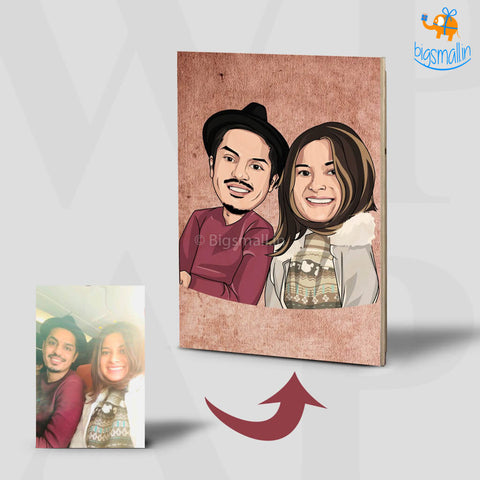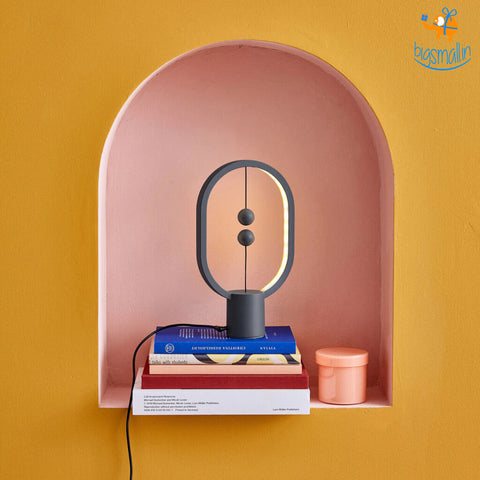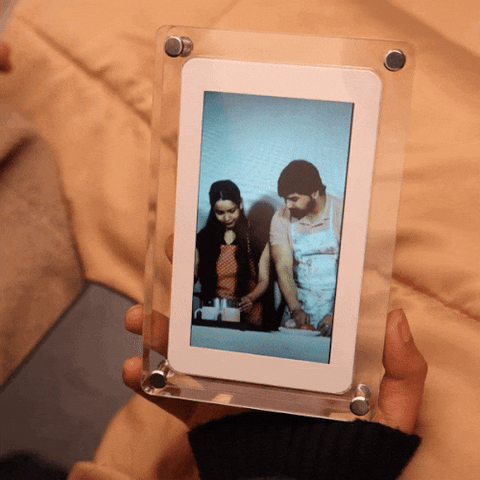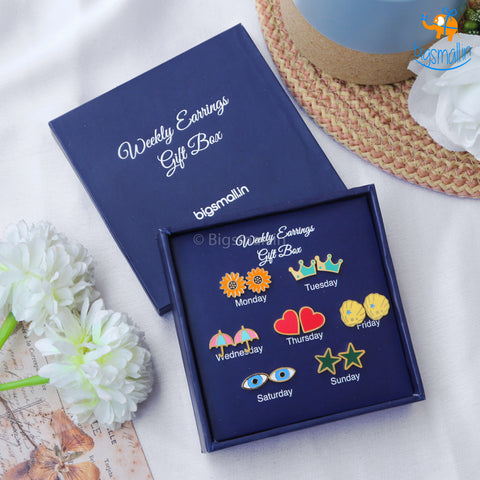Everything You Need To Know About Diwali (FAQ)
It's that time of the year again...With the Festival of Lights around the corner, it's time to rejoice! A celebration that is of utmost significance, be it Hinduism, Jainism, Sikhism- Diwali is a day we look forward to all year! The scrumptious delicacies, the reunions with family, bursting crackers, drawing exquisite rangolis...the festivities go on and on! From being the day of chakris, anars and all sorts of firecrackers to now being an occasion of getting to spend much-needed quality time with family, the celebration of Diwali always holds a special place in all our lives. For those of us who stay away from family, it is often a reason for the annual trip back home! All in all, the celebration of Diwali represents a new beginning and stands for self-improvement.
Do you know all about this delightful occasion? Its history, significance, legends and so on? We've compiled a list of FAQs about Diwali for you to get to know all about the Festival of Lights.
Q. Why is Diwali celebrated?
A. The main theme that runs along why Diwali is celebrated by most religions is the victory of goodness over evil. 'Diwali' or 'Deepavali' means 'row of lights'. In north India, the day commemorates the return of Lord Ram, his wife Sita and his brother Lakshman to Ayodhya after having lived in exile for 14 years. The entire kingdom of Ayodhya was lit up with diyas for their welcome. And so, it became a tradition!
In the South, people believe that Lord Krishna killed the evil demon, Naraksura, on this day and rendered his thousands of prisoners free.
In the West, it is believed that this auspicious day is celebrated because Lord Vishnu has defeated the demon king, Bali, and had sent him away to rule the underground realm (called 'Lok Patal' in Hindu culture) and thus helped Indra regain his rule over the heavens. People also believe that this festival celebrates the marriage of Vishnu and Lakshmi.
And finally, in West Bengal, the Goddess Kali is worshipped. Being the dark goddess for strength and power, she is offered prayers by people for well-being and prosperity.
All in all, we all participate in the pomp and joy Diwali has to offer for different reasons but it is a festival that binds all of us together!
Q. When is Diwali this year?
A. Diwali is on 12th November 2023. This day is also the beginning of the new year in the Hindu calendar.
Q. When is Diwali celebrated?
A. Diwali takes place every year in October or November on an Amavasya or a New Moon Night. It is often said that this is the darkest night of the year. It is the fifteenth day of the Kartika month of the Hindu calendar. The festivities are spread over 5 or 6 days, beginning with Dhanteras. The date of Diwali depends on the lunar cycle and the Hindu Calendar.
Q. Why do people gamble on Diwali?
A. There is a legend behind why people gamble on Diwali. It is said that on this day, the goddess Parvati had played dice with her husband, Shiva. She then declared that whoever would gamble on the night of Diwali would be ensured good fortune and prosperity all throughout the year.
Q. Are there festivals celebrated around the time of Diwali?
A. Actually, the festivities of Diwali go on for 5 to 6 days. Each day has its own tale to tell. The festivities begin with Dhanteras, which is also known as 'Dhanvantari Triodasi'. The name comes from two words 'dhan' and 'tera', which stands for 'wealth' and 'thirteen', as it on the thirteenth day of the Hindu calendar. It is a day devoted to celebrating wealth. People usually buy gold and utensils around this time. Some also worship Lord Ganesha, Lord Kuber and Goddess Lakshmi on this day. Dhanteras is preceded by houses and business premises being thoroughly cleaned and renovated or painted.
After this, on the second day, comes 'Choti Diwali', which is also often referred to as 'Naraka Chaturdasi'. Naraksura was killed on this day by Krishna, Satyabhama and Kali. In south India, Diwali is celebrated on this day itself, whereas for the rest of India, it is the day after this that is considered as the main festival. People draw rangolis outside their homes and burst crackers. In Bengal, Orissa and Assam, Kali puja is celebrated widely on this day too.
The main festival is on the third day, which this year falls on 4th November. People light diyas and candles all around their homes, set off fireworks, exchange sweets and gifts and of course, perform Lakshmi Pooja together! This day marks the Hindu New Year.
The fourth day involves businessmen opening new accounts for the financial year and it also remembers the God Bali who had been sent to the lower realm.
The fifth and final day is known as 'Bhai Duj' or 'Bhaiya Duj' and is mainly devoted to celebrating sisters. Siblings get to celebrate the bond between them. Although this festival is similar to Rakhi, the rituals are quite different. Throughout the day, women get together and perform a puja for the well being of their brothers. Gift giving and eating good food follow! In the Rig Veda, Lord Yama's twin is Yami. After having spent a long time apart, Yama visited his sister's home, only to be left extremely impressed with her hospitality. Yami welcomed her brother and put a tilak on his forehead. Yamraj offered her his blessing and then declared that if a brother greets his sister on this day, his sister would have a long life.
Q. Are there interesting legends associated with Diwali?
A. In Himachal Pradesh, a few districts such as Shillai and Chopal celebrate Diwali a whole month after it has been celebrated by the rest of the country. And thus, it is called 'Budhi Diwali', meaning old Diwali! The reason for this, as they say, is that after Ram returned, it took time for the news of his re-arrival to spread to all parts of the kingdom. Especially for the mountains in the north, the news took an especially long time to reach. Although they also took part in the celebrations immediately on receiving the news, it still happened a month later than the rest of the kingdom.
Q. Is Diwali celebrated only by Hindus?
A. While Diwali is one of the most important festivals in Hindu culture, it is also celebrated by Buddhists, Jains, Sikhs all over the world. The festival is also often celebrated along with families in the neighbourhood, no matter what religion they're from!
Q. Are there any safety tips for Diwali?
A. If you have sensitive ears, it is advisable to wear ear plugs to eliminate any ill effect the excessive noise of crackers might bring. If you have any breathing difficulties, it is absolutely important to wear a mask to keep the polluted air from entering your lungs!
Q. Are there other mythological reasons behind why Diwali is celebrated?
A. The Pandavas returned from their 12-year exile to Hastinapura on Kartik Amavasya and celebrated their return by lighting earthen lamps, or diyas.
Q. Is Diwali celebrated only in India?
A. Not at all! It is an official holiday in a number of countries- Trinidad & Tobago, Myanmar, Nepal, Mauritius, Guyana, Singapore, Surinam, Malaysia, Sri Lanka and Fiji!
Q. Why do Sikhs celebrate Diwali?
A. The sixth Guru of the Sikhs, Guru Hargobind freed himself as well as other Hindu rulers from the hands of Mughal Emperor, Jahangir, in 1619. In fact, it is interesting to note that the foundation stone of the holiest Sikh place in the world- the Golden Temple- was laid on Diwali in the year of 1577!
Q. What is the best time for Lakshmi Pooja?
A. Legend says that Lakshmi, the goddess of wealth and good fortune in Hindu culture visits her devotees on the night of Diwali and blesses them. She is the wife of Vishnu. To greet her, people clean their homes in and out, decorate it with the finest lights and prepare delicacies for her. Since it is widely known that the goddess likes cleanliness, people worship the broom with offerings of haldi and sindoor during Diwali.
Lakshmi Pooja is performed on the third day of Diwali, which is said to the most auspicious day. The most auspicious time in the day is during 'pradosh kaal' or evening time on amavasya tithi.
Five deities are worshipped on this day: Lord Ganesha is worshipped at the beginning. Next, Goddess Lakshmi is worshipped in her 3 forms-Mahalakshmi, the goddess of wealth and money; Mahasaraswati, the goddess of books and learning and Mahakali. Lord Kubera, who is known as the treasurer of the gods is also worshipped.
Q. What are some traditions associated with Diwali?
A. On the day of Diwali, people offer their prayers to Goddess Lakshmi, the goddess of wealth and prosperity. They also pray to the deity Ganesha, who is the remover of obstacles. It is said that Goddess Lakshmi was churned out of the sea on Diwali and visits homes every year, with the cleanest ones first. This is also why people ensure that their homes are spotlessly clean every Diwali!
Q. What are some creative Diwali gifting ideas for parents?
A. If you've got a parent who's an avid reader, you could get them a hands-free book holder. It gives them the liberty to sit back and relax and let the holder keep the book upright while they remain engrossed in its pages. It is a very useful gift, something you know any receiver would get tons of use out of! If you want to get them a collective gift, these Ring Holders are a fitting match! They work well at keeping precious rings safe and secure while one is running errands or doing the dishes and are also really cute and can take the décor of any home up a notch.
Q. Why do people make rangolis on Diwali?
A. Diwali is incomplete without the beauty offered by Rangoli! It is a timeless tradition follower all over the nation. It is also known by other names such as 'kolam', 'aripoma','alpana'. For many families, it is a way of spending quality time and is also a festivity parents and children bond over. It is a decoration to welcome the deity Lakshmi and, of course, numerous guests, friends and family!
Q. Do different states make different types of Rangoli on Diwali?
A. Different states have different types of rangolis indigenous to them. For instance, in Bihar, there is a certain type of Rangoli where the footsteps of the Goddess Lakshmi are drawn on the doorstep. The toes point towards the door, signifying her entry into the house.
In Andhra Pradesh, one of the most popular Rangoli patterns is a geometrical pattern of an 8 petal lotus. This is referred to as 'ashtadal kamal'.
In Tamil Nadu, people draw 'hridaya kalam', an 8-pointed star, in place of the 8 petal lotus. It means' lotus of the heart'.
Q. What are some unique gifts for my friends on Diwali season?
A. If you have a friend who loves all things pretty, these super soft Cushion Socks are not only adorable, they also work amazingly well at keeping one's feet warm and cosy! Plush, comfortable socks never go out of style. Whether it's your best friend you'd like to find a gift for or even the mother figure of the group, these luxurious socks are a super sweet gift!
If you have a buddy who lives alone, he's probably having a hard time keeping his place clean, Especially, keeping the bathroom.To help the poor guy out, you could get him a Beard Catcher. It'll help him immensely in keeping his bathroom clean the next time he shaves and saves him lots of time that he would have otherwise spent on picking up the hair and cleaning the mess the beard shaving would have left behind! You can explore more unique Diwali Gifts as well as unique corporate Diwali gifts on bigsmall.
Q. Why do Jains celebrate Diwali?
A. According to Jain history, the founder, or the last Jain Tirthankar of Jainism attained 'Moksha' or salvation on the day of Diwali. Hence, the festival is devoted to his achievement of nirvana!
Q. What special food is prepared on Diwali?
A. All kinds of sweets! Whether it's gulab jamuns dripping with sugar syrup, crunchy, brightly-coloured, eye-catching jalebis, scrumptious barfi, delicious varieties of Halwa...Diwali is the time to gorge on sweets!
Q. What should I get for my sister or brother on Diwali?
A. When it comes to picking gifts for one's siblings, you'd think choosing would be easy. However, for many of us, it becomes a nightmare! After all, how does one pick from the ton of products online? The endless array of conventional gifts can get overwhelming. Well, we've got some ideas for you. If your sibling loves chai, get them a Expressions Cookie Holder Mug! A mug that has a designated pocket for you to put your biscuits or cookies in- need we say more? It is just the mug for anyone who loves their tea or coffee and adores all kinds of problem-solving items! If they love coffee, another good option is the 3D Bear Cup with Saucer. Give them a mug that is all things sweet and cuddly! Something they deserve after a long day at work. If you have a younger sibling, check out some thoughtful Diwali gifts for kids that are quirky yet useful. After Diwali comes another festival celebrating the sibling love - Bhai Dooj. You can celebrate gift by giving unique bhai dooj gifts for brother and reminiscing about old times.
Q. Does all of India celebrate Diwali?
A. Although Diwali is celebrated in different states for varied reasons and is also known by other names, it is a festival that is celebrated all over the country!
Q. Does Bigsmall deal in Corporate Diwali Gifts?
A. Yes, we cater to all type of corporate queries for Diwali or any other festival in general. Simply shoot out an email to us at support@bigsmall.in and we'll help you in a jiffy with the most unique corporate gift ideas curated to your attention.
Now, go out there and celebrate this happy festival with your near and dear ones! Revel in the festivities, wear new clothes, exchange sweets and most importantly...stay safe! If you'd like to make their day even better, get them the coolest Diwali Gifts. A unique, thoughtful gift can go a long way in brightening up someone's day and leaving them overjoyed!
Happy Gifting!


 Gifts
Gifts









 Shop By Category
Shop By Category



















 Home & Lifestyle
Home & Lifestyle











 Home
Home Mother's Day Gifts
Mother's Day Gifts Best Sellers
Best Sellers New Products
New Products Corporate
Corporate Personalised Gifts
Personalised Gifts Gadgets
Gadgets All Products
All Products




